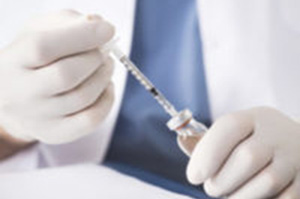
Following the release of an HHS report on international drug pricing, President Trump announced a new Department of Health and Human Services (HHS) initiative to index pricing for Medicare Part B drugs to international prices. The advance notice of proposed rulemaking solicits comments on a demonstration program HHS is considering that would test changes to pricing for Part B drugs and biologicals.
Comments will be due on December 29, 2018. CMS plans to issue a proposed rule in Spring 2019 with the model to begin in Spring 2020 and end in Spring 2025.
The potential International Pricing Index (IPI) model will be administered by the Center for Medicare and Medicaid Innovation (CMMI) and will affect the current administration fee for physician-administered drugs. Under the model, private-sector vendors would supply doctors and hospitals with the drugs included in the model, meaning that providers would no longer purchase drugs and then bill Medicare when they are administered. Vendors would be reimbursed by Medicare based on international prices intended to lower pricing to levels consistent with other countries.
Doctors and hospitals would select vendors who provided the best prices as well as other incentives such as electronic ordering and innovative distribution arrangements. In addition to specialty pharmacies, CMS plans to allow GPOs, wholesalers, distributors, manufacturers, Part D sponsors, and others to perform the vendor requirements under the potential model on a national basis. Vendors would purchase and take title to the drugs but need not take actual possession of them prior to delivery to doctors and hospitals.
IPI participants would include all physicians and hospital outpatient departments that furnish the drugs included in the model within the geographic areas of the model, and participation would be mandatory. Payment to physicians and hospitals would be based on the current average sales price plus 6 percent add-on payment for drug administration (4.3 percent after sequestration) but would be paid in a set amount per administered drug separately billed to Medicare and adjusted based on the class of drugs or physicians’ specialty. Payment amounts would be adjusted annually to mirror the 6 percent target.
Included drugs would be single-source drugs, biologicals, biosimilars, and multiple source drugs with a single manufacturer that would be identified based on available international pricing data. Generally, the drugs included in today’s ASPE report would be included, and others would be added over time, on a quarterly or annual basis.
In order to develop target pricing, CMS would create an International Price Index based on the ratio of Part B volumes and ASP prices to international prices in other large industrialized nations (as identified in the ASPE memo). The IPI would be multiplied by a factor that achieves a 30 percent reduction in Medicare spending and then by the international pricing to create a target price which would be recalibrated as-needed. This target price would be phased in over the five years of the model, with 80% of the price based on ASP in the first year and reaching 100% of target price in year 5. To the degree that the model affects the Average Manufacturer Price by reducing the sales price to vendors, the 340B ceiling price would be affected as well.
CMS solicits feedback on a large number of issues, generally including:
- What limitations would be in place on the entities that could participate as vendors (e.g. pharmacies, manufacturers, providers themselves)?
- Which countries should be included in calculating an international pricing index? How frequently should international data be updated?
- What should be the schedule for phasing in the spending target?
- Should we introduce health care provider bonuses to incentivize reductions in cost or utilization relative to a benchmark?
